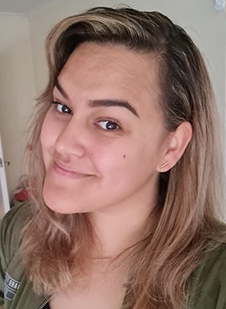New research from the University of Otago, Christchurch debunks the myth that culture is possibly tied to home ownership.

Grace Walker
Assistant research fellow Grace Walker (Ngāti Kahungunu, Ngāruahine) says the research shows that home ownership is about one’s personal situation and life course choices.
“Even if you are born and raised in a socioeconomically disadvantaged family, you can still become a home owner.
“Irrespective of your upbringing, if you are driven to be a home owner and you have the support of your parents to be ambitious and strive to achieve your goals, you will have more chance of becoming a home owner, regardless of how Māori you view yourself, or how connected you are to your culture.
“That said, if you have these traits but don’t want to become a home owner, that’s okay too.”
Ms Walker wanted to understand the differences between why Māori would go into home ownership, and those who rent, using data collected by the Christchurch Health and Development Study.
She and co-author Dr Jay Whitehead found five key characteristics that helped differentiate between those who rented at 35 years old, and those who owned a home. The results of that study have been published in the New Zealand Population Review journal this morning.
When considering the life course pathways, it was unsurprising that being in a stable long-term relationship, less dependent on welfare, having a greater household income and lower substance dependency were all associated with being a homeowner by 35.
Ms Walker was a little surprised to identify parents' future aspirations when the cohort members were 16 was also significant for home ownership. However, she notes “when put into context, this is actually an important factor because it highlights the encouragement of where you would like your children to go”.
The research comes on the back of long-term declines in home ownership for Māori. When examining rates of individual home ownership between 2001 and 2013, there was a steeper decline in rates of Māori home ownership (decrease from 31.7 to 28.2 per cent) compared to European home ownership (decrease from 59.7 to 56.8 per cent). The greater decline in Māori home ownership highlights the need to understand Māori specific factors throughout the life course that are likely to increase home ownership, and potential policies that can reflect these.
Ms Walker says the research debunks the longstanding myth that culture is possibly tied to decreasing rates of home ownership. Instead, it is more about one’s personal situation and life course choices.
This research is the first of three pieces exploring Māori in home ownership using data collected by the Christchurch Health and Development Study. The next piece of research will explore Māori and non-Māori home ownership by age 40, where further longitudinal lessons will be analysed.
While the results of this and the next two studies will have significant and positive implications for Māori aspiring to get on the property ladder, the research itself is also unique.
When researching Māori there are many limitations of using longitudinal data, so Whitehead and Walker wanted their researcher to understand the Māori cohort, rather than compare them against other ethnicities. She says the opportunity to purely examine data within the Māori cohort allows for richer conversations for Māori, instead of pitting them against other groups.
“By doing a Māori-specific analysis, I’m not trying to understand why Māori are worse but rather debunk some of the myths by producing research that ensures Māori can see there are positive pathways towards home ownership irrespective of where you started from.”
For more information, contact:
Matiu Workman
Communications Advisor (Māori)
University of Otago
Email matiu.workman@otago.ac.nz
Find an Otago expert
Use our Media Expertise Database to find an Otago researcher for media comment.
